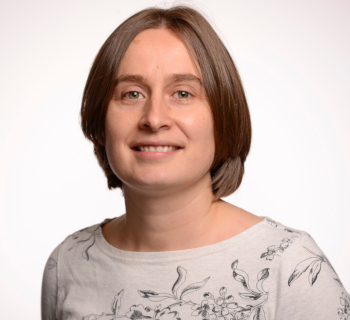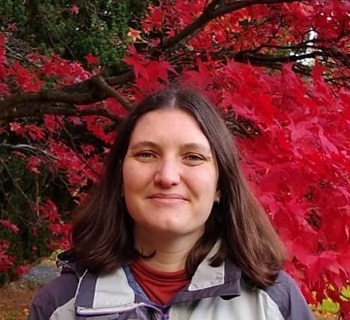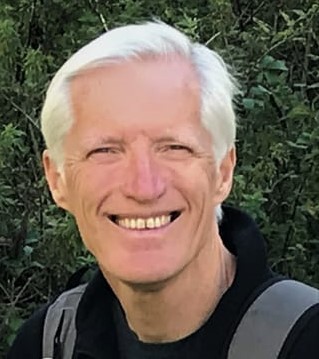The School of Geography and Sustainable Development hosts a diverse and vibrant community of around 50 research students, most of whom are studying for a three-year PhD. The School offers the following research degrees:
- PhD (Doctorate), normally of three years duration leading to a thesis of no more than 80,000 words and an oral examination.
- MSc (Res) and MSt (Res), these are one-year programmes examined by a 30,000-word thesis. Part-time options are also available.
The University of St Andrews offers beautiful surroundings and a stimulating, interdisciplinary intellectual atmosphere. Coupled with supportive supervision, high-quality library and laboratory facilities, the University provides an excellent environment that enables world-class research into a wide range of topics.
See more information about research within the School. You can also read about the research interests of staff members on their individual profiles in the people section.
The University’s GRADskills programme provides a wealth of training opportunities to help you develop transferable skills and achieve your research and career goals.
-
In addition to the current funded opportunities, we also welcome applications for study towards research degrees on a wide range of topics from candidates with an excellent academic background. You can find out more about the range of research undertaken in the school by viewing the Research groups page. In the first instance, please contact a relevant member of academic staff to discuss your interest and ideas for possible research projects.
Below is a list of example PhD topics and titles suggested by staff members (and grouped by research group). You can use this to help identify a supervisor whose research interests align with your own. Please note that this list is not exhaustive, and you can find more staff members on the people page.
These projects do not have funding attached (unlike those listed under Current funded opportunities), and this would have to be secured separately. You can learn more about options and opportunities for funding PhD projects by viewing the Funding tab below.
To find out more about any of the project ideas listed below, please contact the named member of staff.
Population and Health
- In a context of economic, political and health crises, what is shaping people’s decisions about where to live? (Nissa Finney)
- Is Britain becoming more segregated? (Nissa Finney)
- How can we understand the stark ethnic inequalities in housing in Britain? (Nissa Finney)
- Population health inequalities, e.g., by race/ethnicity, gender, SES (Jo Hale)
- Mental health and well-being, especially in later life (Jo Hale)
- The characteristics, causes and consequences of declines in internal migration (David McCollum)
- The labour market dynamics of migration (David McCollum)
- Social and spatial mobilities (David McCollum)
- The impacts of the contemporary crises (including financial, Covid-related and that of migrant reception) on urban public spaces (Antonis Vradis)
Geographies of Sustainability, Society, Inequalities and Possibilities (GOSSIP)
- Between environmental policy ideal and implementation reality: what are the issues and how might we address the gap? (Antje Brown)
- Maritime security and the blue economy, intersections and interdependence (Ifesinachi Okafor-Yarwood)
- Gendered implications of COVID19 on coastal livelihoods (Ifesinachi Okafor-Yarwood)
- Exploring home and energy geographies: where, how and why does energy demand matter? (Louise Reid)
- Homes that care: understanding technology enabled care at home (Louise Reid)
- Exploring energy with care – understanding overlaps between care and energy in the context of home (Louise Reid)
- Conflicts over fossil fuels and resource extraction (Michael Simpson)
- The geographies of settler colonialism (Michael Simpson)
- Governing the shoreface: designing institutions for sustainable coasts (Tim Stojanovic)
- Historical geography of coasts and coastal research (Tim Stojanovic and Dan Clayton)
- Environmental management and conservation debates, e.g. rewilding, alien species, the energy transition (Charles Warren)
- Influences of craft and associated material based activities on human nature relationships and sustainability (Rehema White)
- Traditional beliefs in and uses of wildlife products in sub-Saharan Africa: relationship with urbanisation, cultural identity and development (Rehema White)
Environmental Change
- Iceberg calving in West Antarctica (Doug Benn)
- Hydrological importance and climate response of rock glaciers in mountain permafrost. The study includes remote sensing analysis and in-situ observations. Main study region is located in the Tien Shan Kazakhstan and Kyrgyzstan. Funding for field work is available. (Tobias Bolch)
- Automated mapping of debris-covered glaciers and rock glaciers using object based image analysis and deep learning techniques (Tobias Bolch)
- Past and projected future glacier melt in HMA and its impact on water availability. This study includes detailed assessment of past glacier changes using remote sensing and glacio-hydrological modelling (Tobias Bolch)
- What controls the rate of glacier retreat in Greenland? (Tom Cowton)
- How do ice sheets interact with the oceans? (Tom Cowton)
- Movement analytics, specifically developing new methods for either animal movement of human mobility (Urska Demsar). Note: To be suitable for these projects, you have to be able to code and implement your ideas, and preferably know R or Python.
- What factors affect the preservation of volcanic ash (tephra) in terrestrial and lacustrine environments? (Richard Streeter)
- How can erosion patterns in high-latitudes be used to predict future landscape change? (Richard Streeter)
-
PhD Studentship in Population and Migration Studies
Applicants are invited to apply for a 3.5-year PhD scholarship in Population and Migration Studies (PDF) .
The closing date for applications is Monday 23rd August.
For informal enquiries about the studentship, please contact Prof. Hill Kulu (hill.kulu@st-andrews.ac.uk). For enquiries about the application process please contact the PGR administrator (gsdpgradmin@st-andrews.ac.uk). Please include ‘MigrantLife PhD studentship’ in the subject line of your email.
St Andrews–Max Planck PhD Studentship in Population Health
We invite applications for a 3.5-year St Andrews–Max Planck PhD studentship in Population Health (PDF) . The PhD studentship is funded by the University of St Andrews and the Max Planck Institute for Demographic Research (MPIDR). The PhD student will be working on mortality from substance abuse in high-income countries.
The PhD student will be supervised by the following team: Dr. Enrique Acosta (MPIDR), Prof. Mikko Myrskylä (MPIDR) and Prof. Hill Kulu (St Andrews).
The closing date for applications is Tuesday 31st August.
For informal enquiries about the studentship, please contact Dr. Enrique Acosta (acosta@demogr.mpg.de), Prof. Mikko Myrskylä (sekmyrskyla@demogr.mpg.de) and Prof. Hill Kulu (Hill.Kulu@st-andrews.ac.uk). For enquiries about the application process please contact the PGR administrator (gsdpgradmin@st-andrews.ac.uk). Please include ‘St Andrews–Max Planck PhD studentship’ in the subject line of your email.
-
Research students within the School are funded from a wide range of sources including UK research councils, charities, industry partners, and overseas agencies. See a complete list of current postgraduate funding opportunities. For details of specific projects with funding attached please see the Current funded opportunities tab above.
Enquiries from self-funding students are welcome. Information on tuition fees and other costs of studying at St Andrews can be found on the University’s fees and funding page.
-
Prospective students with a 1st class or 2.1 degree in Geography or a related discipline can be considered for entry into the School’s postgraduate programmes.
Current funded opportunities may have their own specific application process, which will be given along with details of the project. Otherwise, if you are interested in undertaking a research degree, the first stage is to identify and contact a potential supervisor (see ‘Research projects’ above). You must secure the support of your potential supervisor before proceeding to a formal application.
When you contact your potential supervisor it is helpful to include the following:
- Details of project – a specific PhD project proposal of at least 500 words of original and referenced writing.
- Funding – identify a source of funding. You may wish to look at the fees and funding section on the University’s Apply page.
- CV or resume
If you and your potential supervisor wish to continue to a formal application please do so at the University’s Apply page. If you have any queries about the application process please email the postgraduate research administrator at gsdpgradmin@st-andrews.ac.uk.
-
The School’s PhD programme is designed to enable you to undertake a substantial piece of research whilst gaining the skills and wider experience that will help with your next steps, whether you wish to pursue a career in or beyond academia. Every PhD is different, but a broad outline of your pathway as a PhD student is provided below.
Year 1
- Training
At the start of each year you will conduct a training needs analysis with your supervisors in order to identify the skills, both generic and subject-specific, that you will need in order to complete your research successfully. The Centre for Educational Enhancement and Development (CEED) provides in-house training on a range of generic skills, whilst training for specific research methods may involve travel to institutions further afield.
- Research
You will meet regularly with your supervisor and will start work on your research. For many students, the first chance to share their research with a wider audience comes at the School’s PGR Conference, held each April.
You will have two reviews in your first year as a PhD student, followed by an annual review in each subsequent year. These are intended to make sure that you are settling into and progressing in your studies in St Andrews, and to give you a chance to get advice from staff beyond your supervisory team.
Year 2
- Research
You will be in a more intensive stage of your study, carrying out the necessary research and data collection on which your thesis will be built. This may be something you can do from your desk, or may require fieldwork or placements away from St Andrews.
You will be expected to present your research at the School’s PGR Conference in April, and will be encouraged to attend relevant conferences at workshops at a national and international level.
- Teaching
This may be a good time to gain experience teaching undergraduate students. The School offers a wide range of paid teaching opportunities to PhD students, such as leading tutorials, helping with lab classes and fieldtrips and marking assignments.
Year 3
- Research
You will spend this year trying to complete your research for your thesis and work towards submitting the final draft and having your viva defence.
You will continue to build on your research from the preceding years, with an increasing emphasis on analysing and interpreting your data and writing up your findings. As well as working towards the completion of your thesis, you will be encouraged to submit your work to academic publications, where it can be picked up by a wider audience.
As in previous years, you will be expected to present your research at the School’s PGR Conference in April, and will be encouraged to share your findings at national and international conferences.
Year 4 (if needed)
If not completed in year 3 you will complete and submit a final draft of your thesis and have your viva defence. During the year you will continue working on publications, conferences and even applications for funding, as you will now be ready to enter the job market.
-
Helen Packwood
I thoroughly enjoyed my time as a PhD student in the School of Geography and Sustainable Development at St Andrews! I admit, it was daunting returning to studies after many years in the workplace, but I quickly settled into this welcoming community and received excellent support from staff and fellow students. Over the three years, I had many opportunities to develop new skills, travel, meet new people and build on my professional experiences. Since graduating, I have remained in academia, based at the School of Social and Political Science at the University of Edinburgh. Initially, working as an Outreach Fellow in the Edinburgh Q Step Centre, and more recently as a Lecturer in Social Research Methods.

Genevieve Cezard
I was very fortunate to be awarded the St Leonard’s and Geography & Sustainable Development PhD studentship in 2016. It gave me the freedom to investigate my own research project on ethnic inequalities in health in Scotland. I received invaluable guidance and support from my supervisors, helping me to get through the variety of challenges a PhD can bring but also giving me the confidence to pursue my own ideas. My PhD years were great, working in a very welcoming and stimulating environment, thanks to my PhD peers and research group colleagues.
I graduated in 2020 and stayed in academia. I am now a postdoc in social epidemiology, and still in the school of Geography and Sustainable Development at the University of St Andrews!

Iain Todd
After 40 years working in the energy sector – in both industry and the UK Civil Service – I completed my PhD at the University of St Andrews between 2017 and 2020. My research addressed a question that had always puzzled me – the barriers in Africa to deploying their abundant renewable (solar) resources. This involved a fascinating time conducting interviews in South Africa, and at the end a viva examination by Zoom! Since completion, I have been working at the Erasmus University Rotterdam researching the barriers to energy transition in the Netherlands and the UK, in the post-COVID world. The Climate and Energy Transition | Erasmus School of Social and Behavioural Sciences | Erasmus University Rotterdam (eur.nl)

 Etudes Non Stop Study Non Stop
Etudes Non Stop Study Non Stop



